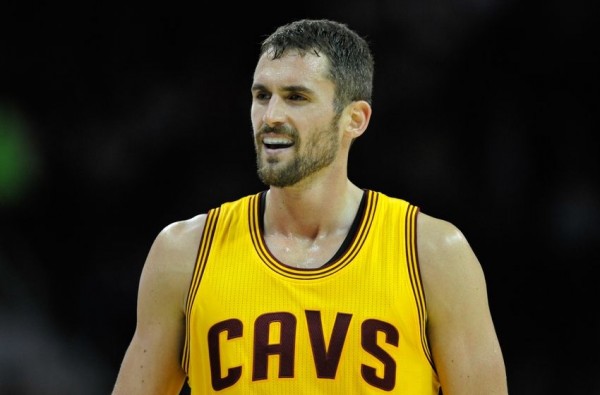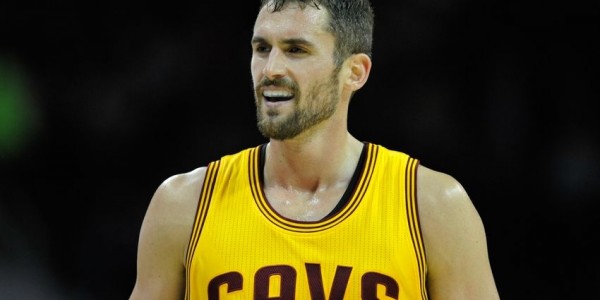
With Kevin Love rumors hinting that he’ll opt out of his contract with the Cleveland Cavaliers, teams like the Los Angeles Lakers, Houston Rockets and the Boston Celtics are standing in line, waiting to see what decision he makes.
Love is out of the Cavs’ run to the finals, playing only in the first round before dislocating his shoulder. Playing as mostly a stretch ‘4’ and the third scorer and option on offense, he averaged 16.4 points and 9.3 rebounds per game.
The Houston Rockets might be the most title ready team of the three, but how exactly do they sign him? Even if they don’t go in on the option to keep Kostas Papanikolaou, they’re still only $6 million under the salary cap. That means a trade, with the Cavaliers or a three-team deal, is the way for the Rockets to sign Love, not to mention players like Jason Terry, Josh Smith and Patrick Beverley up for contract renewals.
The Los Angeles Lakers, for years now, have been looking like the main option for Love, who loves the West Coast and played college basketball in Los Angeles for UCLA. The Lakers have about $19 million in cap space which works with Love, but that slightly contradicts Love’s purpose of leaving the Cavaliers. If he wants to be the star of his own team, it’s not going to happen while Kobe Bryant is still around.
The Celtics are an interesting option. A team on the rise that’s in dire need of scoring. They have about $25 million in cap space and in a good situation with a never ending list of draft picks for the coming years, not to mention finally getting rid of the Gerald Wallace contract after next season, in which he’ll be making $10.1 million for doing close to nothing.
But Kelly Olynyk is the one who dislocated Love’s shoulder. Would Love, probably still harboring a grudge, want to play on a team with Olynyk next to him? Isn’t the situation in Boston too much like what he had in Minnesota, where he’ll be a max-contract player, but that might mean he’ll never be in a position to really win? What’s the most important thing for Love?
Maybe in the end he doesn’t opt out at all. At $16.7 million which he’ll make next season he’s not underpaid. He might not be the first or second option for the Cavaliers, but he’ll be on a loaded team that’s ready to dominate the East and make another run at the title, regardless of what happens at the end of this season. And it leaves him the option of becoming a free agent in 2016, when salaries will get something close to a 33% rise, just like the salary cap.
